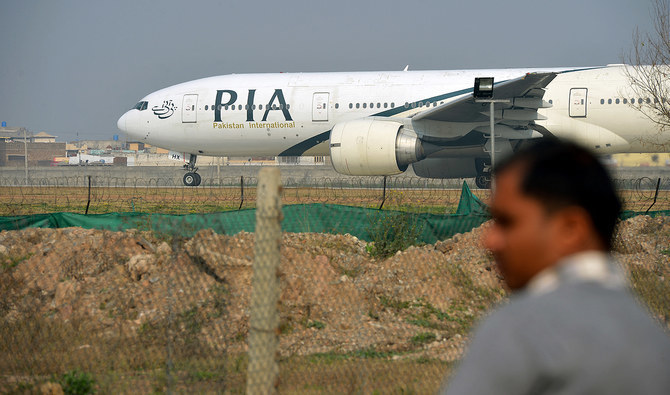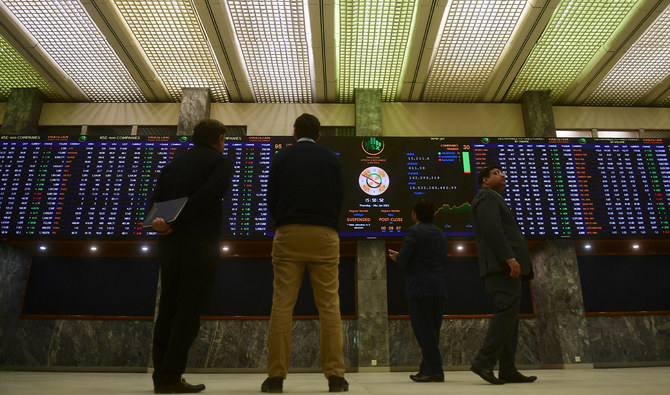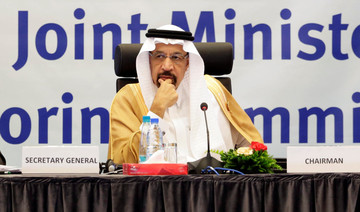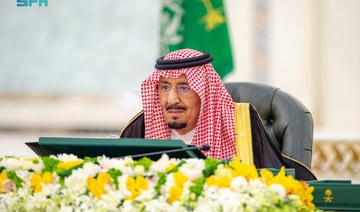SINGAPORE: World oil demand will peak at 104.4 million barrels per day (bpd) in the mid-2030s, up from just below 100 million bpd currently, as new technologies gradually eat into oil use, China’s Unipec said on Monday.
Improved energy efficiency and technological changes, including the rise of renewables, meant global oil demand growth would slow in coming years before peaking in 2035, Unipec President Chen Bo told the annual Asia Pacific Petroleum Conference (APPEC).
This in turn will slow growth in global oil refining capacity, which is set to hit 5.6 billion tons per year in 2035, he said.
“We believe 2018-2035 will be the last cycle of global refining capacity expansion. After 2035, it is difficult to see large-scale refining projects in construction, except for some small upgrade projects and petrochemical projects,” said Chen.
Unipec is the trading arm of Asia’s largest refiner Sinopec.
The switch to cleaner fuels will also boost global demand for liquefied natural gas (LNG), particularly in the Asia Pacific, after 2025, he added.
An escalating trade war between China, the largest energy importer, and the United States has dampened the Asian nation’s demand for US crude oil and LNG.
The United States exported 300,000 barrels per day (bpd) of crude oil to China in the first half of 2018, and 56 cargoes of LNG through July, or roughly 10 percent of its total LNG exports, according to official data.
Despite the trade dispute, Chen said US crude supply was an important new source for Chinese refiners as it allowed diversification from Middle East and African crudes.
Trade war tensions between the two countries would last “for the time being, and in the future we’ll be active in this area,” he added.
Beijing has excluded US crude imports from its tariffs list so far, but most Chinese buyers are staying away from US oil as the trade war shows no signs of cooling.
Unipec resumed loading US crude in September after a two-month hiatus.
China is also under pressure from the US to reduce its Iranian oil imports as Washington aims to cut exports from OPEC’s third-largest exporter to zero to force Tehran to negotiate a nuclear treaty.
Buyers in Europe, Japan, South Korea and India have either stopped or are reducing Iranian oil imports sharply ahead of the introduction of sanctions in November.
“I expect we’ll cut a little but the volume has not been finalized,” Chen said, without giving a timeframe for the cuts.
He added that Unipec has resumed normal loadings of Saudi oil after it cut imports in May-July.
Given the current supply and demand dynamic in global markets, Chen said, crude oil prices between at $60 and $80 per barrel were normal.
World oil demand, refining growth to peak in 2035 — Unipec
World oil demand, refining growth to peak in 2035 — Unipec

- Improved energy efficiency and technological changes, including the rise of renewables, meant global oil demand growth would slow in coming years before peaking in 2035
- The switch to cleaner fuels will boost global demand for liquefied natural gas
GCC logistics sector set to expand as Saudi Cabinet approves regional transport law

RIYADH: The logistics sector across the Gulf Cooperation Council region is set to prosper following the Saudi Cabinet’s approval of a land transport law within the region.
Chaired by King Salman, a ministerial session was held in Jeddah, during which the Cabinet reached consensus on several key proposals. Among these was the endorsement of the unified law.
The system is crafted to enhance the organizational environment, simplify procedures, and foster unity. Moreover, it aims to boost road safety, elevate service quality, protect investments, and stimulate growth in the logistics sector throughout the GCC region.
Global airline body calls for release of $720 million in held revenues by Pakistan, Bangladesh

- IATA asks Pakistan in a statement to simplify the ‘onerous’ repatriation process causing ‘unnecessary delays’
- The international organization says airlines are unable to repatriate $399 million from the Pakistani market alone
KARACHI: The International Air Transport Association (IATA) on Wednesday asked Pakistan and Bangladesh to release airline revenues amounting to $720 million, saying the two countries were holding it in contravention of international agreements.
IATA, an international organization representing the global airline industry, asked Pakistan to simplify the “onerous” repatriation process involving audit and tax exemption certificates in a statement, pointing out such procedures caused “unnecessary delays.”
Bangladesh, it said, had a more standardized system, though aviation needed to be a higher central bank priority to facilitate access to foreign exchange.
“The situation has become severe with airlines unable to repatriate over $720 million ($399 million in Pakistan and $323 million in Bangladesh) of revenues earned in these markets,” the statement informed.
IATA’s regional vice president for Asia-Pacific Philip Goh emphasized that the timely repatriation of revenues to different countries was critical for payment of dollar denominated expenses such as lease agreements, spare parts, overflight fees and fuel.
“Delaying repatriation contravenes international obligations written into bilateral agreements and increases exchange rate risks for airlines,” he said. “Pakistan and Bangladesh must release the more than $720 million that they are blocking with immediate effect so that airlines can continue to efficiently provide the air connectivity on which both these economies rely.”
Goh maintained that his organization recognized the two governments were facing difficult challenges, making it necessary for them to determine how to utilize foreign currencies strategically.
“Airlines operate on razor-thin margins,” he continued. “They need to prioritize the markets they serve based on the confidence they have in being able to pay their expenses with revenues that are remitted in a timely and efficient fashion.”
He pointed out reduced air connectivity limited the potential for economic growth, foreign investment and exports, adding such large sums of money involved in the Pakistani and Bangladeshi markets necessitated urgent solutions.
Saudi Arabia to develop 320k new hotel rooms by 2030: Knight Frank

RIYADH: Saudi Arabia is gearing up to expand its hospitality sector by developing 320,000 new hotel rooms by 2030, according to an analysis by global property giant Knight Frank.
The consultancy’s study disclosed that as much as 67 percent of the planned hotel room supply in the Kingdom would fall in the “upscale” or “luxury” categories, referring to 4-star and 5-star accommodations, respectively.
This move aims to cater to the projected surge in tourism, with 150 million domestic and international tourists expected by 2030.
“With a target of welcoming 150 million visitors by 2030—a 50 percent increase from its previous goal—the government is actively exploring various strategies to attract to international travelers,” Partner and Head of Hospitality at Tourism and Leisure Advisory in Middle East and Africa Turab Saleem said.
Saleem noted that this includes the development of cultural and entertainment offerings nationwide, which complement existing attractions like the Jeddah F1 Grand Prix and numerous entertainment seasons.
“Noteworthy additions include theme parks such as Boulevard World in Riyadh, alongside the licensing of 24 additional theme parks by the Saudi General Entertainment Authority over the past year,” he added.
Oil Updates – prices climb amid US stocks decline, Middle East conflict

TOKYO: Oil prices extended gains on Wednesday after industry data showed a surprise drop in US crude stocks last week, a positive sign for demand, though markets were also keeping a close eye on hostilities in the Middle East, according to Reuters
Brent crude futures rose 26 cents, or 0.29 percent, to $88.68 a barrel and US West Texas Intermediate crude futures climbed 26 cents, or 0.31 percent, to $83.62 a barrel at 9:34 a.m. Saudi time.
US crude inventories fell 3.237 million barrels in the week ended April 19, according to market sources citing American Petroleum Institute figures. In contrast, six analysts polled by Reuters had expected a rise of 800,000 barrels.
Traders will be watching for the official US data on oil and product stockpiles due at 5:30 p.m. Saudi time for confirmation of the big drawdown.
US business activity cooled in April to a four-month low, with S&P Global saying on Tuesday that its flash Composite PMI Output Index, which tracks the manufacturing and services sectors, fell to 50.9 this month from 52.1 in March.
“This could help convince policy makers that rate cuts are required to support the economy,” ANZ analysts said in a note.
US interest rate cuts could bolster economic growth and, in turn, demand for oil from the world’s top consumer of the fuel.
Analysts were still bullish that any latest developments in conflicts in the Middle East will still support markets, though the impact on oil supplies remains limited for now.
“Overall, crude oil prices are well supported around current levels by on-going Middle East risk premium. On the topside, risk of possible renewed OPEC production increase from Jun will help limit any significant upside,” said head of markets strategy for United Overseas Bank in Singapore Heng Koon How.
“We maintain our forecast for Brent to consolidate at USD 90/bbl by end of this year,” Heng added.
Israeli strikes intensified across Gaza on Tuesday, in some of the heaviest shelling in weeks.
“Recent reports suggest that both Iran and Israel consider the current operations concluded against one another, with no follow-up action required for now,” ING analysts said in a note.
“The US and Europe are preparing for new sanctions against Iran – although these may not have a material impact on oil supply in the immediate term,” they added.
Pakistan Stock Exchange hits record high, breaks 72,000 points in intraday trade

- Analysts say investors expect a significant decline in April inflation data that may lead to a cut in interest rates
- The Pakistani bourse has recently been trading at record highs due to hopes of positive loan talks with the IMF
ISLAMABAD: Pakistan’s benchmark share index breached the key level of 72,000 to trade at a record high of 72,414 points during intraday trade earlier on Wednesday, according to data from the Pakistan Stock Exchange website.
The Pakistani bourse has recently been trading at record highs amid positive sentiment prevailing among investors due to hopes of the country’s successful talks with the International Monetary Fund (IMF) for a new loan program.
The country’s finance minister, Muhammad Aurangzeb, recently visited Washington to hold talks with IMF officials for a long-term bailout facility as Pakistan’s current $3 billion program is due to expire this month.
The finance minister expressed hopes the outline of the new program would soon become visible, adding that the loan would help Pakistan continue with structural economic reforms.
“After a record current account surplus, investors are now expecting a big fall in April inflation data that may result in a cut in interest rates in the coming months,” Sohail Mohammed, CEO of Karachi-based brokerage company Topline Securities, told Reuters.
Pakistan’s benchmark KSE100 index has surged 75.5 percent over the past year and is up 11.5 percent year-to-date.
The equity market is expected to surge further as an IMF delegation arrives in Pakistan next month to determine the contours of the new loan facility.
“We are still hoping that we can get into a staff-level agreement [with the IMF] by the time June is done or early July so that we can move on,” the finance minister said on Tuesday while addressing a news conference in Islamabad.
With input from Reuters














